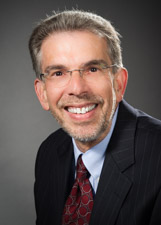Takeaway
When traveling to Denmark, I learned how much the Danes appreciate and value equitable access to care within their healthcare system. Countries can learn from one another, and clinicians can be impactful advocates for change.

Lifelong learning in clinical excellence | May 24, 2021 | 2 min read
By Eric Last, DO, Northwell Health, Wantagh, New York
I’ve had the privilege of traveling to many countries with my wife and children. We’ve met the people, viewed the scenery, experienced the culture, seen the art, and reveled in the music. We’ve tasted the food and sampled the wines and whiskies.
And, as an internist, and sometime student of politics and healthcare policy, I take these opportunities to ask our guides about healthcare in their country. Often they speak of having to wait for care, delays that wouldn’t be tolerated in America, but that created for them an inconvenience rather than a threat to life or health. Always, though, they speak of accessibility to care and of equality of treatment. They said they never had to worry about whether their illness would be diagnosed or treated once found. They didn’t live in fear of losing their jobs or of losing their insurance, because their health insurance isn’t linked to their employment status. Their society gave more than a safety net – what they have is a social contract between and among citizens and their government.
One of our trips was to Denmark. We were told the Danes were among the happiest people on the planet. I looked back at studies that showed why that is. Danes have access to “free” education and healthcare. They feel a societal and cultural obligation to look out for each other. To provide for each other through the arc of life.
Of course, nothing is really “free.” Danes pay taxes that are, by our standards, astronomically high. But even paying taxes makes Danes happy because they know that in return, their quality of life is better due to the investment.
Contrast that with the conversation I had yesterday. It was with woman just diagnosed with breast cancer. Her pathology showed one node was involved with her invasive, poorly differentiated, ER/PR positive/HER-2 positive malignancy. Facing chemotherapy and radiation, she’s still waiting for her insurance company’s approval for the PET scan and echocardiogram her oncologist needs for treatment planning.
Her usually smiling face, her easy sense of humor were missing yesterday, replaced by the sadness of her diagnosis. But making it so much worse, bringing out the tears she’d held back, was her realization that she may not be able to afford the care she needs. Although she met her insurance deductible, she will still be responsible for 20 percent of her extremely expensive bills. And her employer has told her not to worry – they’ll “generously” allow her to make up the work hours she’ll lose to chemotherapy’s side effects by working on Saturdays and Sundays.
As clinicians, we care for our patients. As clinician-citizens, we need to advocate for a healthcare system that provides for everyone’s well-being. Our current system must learn lessons from the rest of the world.
This piece expresses the views solely of the author. It does not represent the views of any organization, including Johns Hopkins Medicine.

